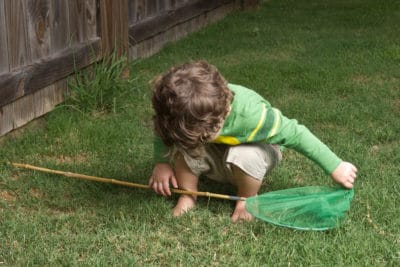
Learning at home can be fun.
Right now, a lot of parents are freaking out at the prospect of schooling their kids while also working from home. And wondering if it’s even possible to do both without going crazy.
It’s possible. In fact, it can be be downright wonderful.
I homeschooled our boys for 7 1/2 years, while also working part-time as a freelance writer. Were there moments of stress in our days? Absolutely. Was I completely overwhelmed (to the point of tears) when we first started homeschooling? Yes, yes, I was.
But over time, I learned at what worked for me and my boys. I also learned what’s important: curiosity, creativity and learning how to learn. Grades, grade levels and externally-imposed standards are not important. Learning at home, I discovered, is very different than learning in school.
We ended up embracing a very casual form of homeschooling called “unschooling,” which is more accurately described as “learning from life.”
Here’s what that looked like for us — and what it might look like for you:
“Mom! There’s a huge bug downstairs!”
I roll over and glance at the clock: 6:50 a.m., and three very frantic boys standing beside my bed. My nine-year-old gestures wildly.
“There’s a huge flying bug downstairs!” His brothers, ages 6 and 4, nod. I rub my eyes, trying to will myself awake. “Come on, Mom!”
“Did anyone try catching it?” I ask, reaching for my robe. The boys, after all, are expert bug hunters.
“Good idea!” The boys scramble outside. Nathan, my oldest, reappears with a butterfly net.
“Here, Mom!” The net is shoved into my hand. Nathan points to the living room and runs outside, leaving me alone to face the big flying bug.
Our days don’t start with bells or the Pledge of Allegiance. Our days begin the minute we wake up and end when we go to bed. And while our days follow a pattern – computer time, breakfast and chores in the morning; story time, quiet time and game time after lunch; out in the afternoon and a book at bed – every day has its own unique rhythm and flow.
Some days we go grocery shopping. Some days we just hang around home. Other days, it’s lessons or a field trip. Sometimes, we just go exploring. But while we don’t follow a predictable schedule – math at 9:00, followed by phonics at 10:00 – reading, writing, math, science, social studies, religion and health are woven into the threads of our day. What better way to learn science than to observe and discuss the bee that landed on your living room curtains? Could math, home ec. and reading be any more fun (or practical) than baking a rhubarb crisp together? Even grocery shopping offers multiple opportunities for learning. My youngest counts produce and loads the cart, while my older sons, armed with their own lists, shop for bargains independently. Tyler, age 6, learned to read “milk,” “bread,” “juice” and “corn” by seeing them, over and over, on his shopping list.
Freed of academic expectations, my children are able to explore their own interests. After the bee incident, Nathan, my nine-year-old entrepreneur, heads down to the Green Market to check out the competition. Later this summer, he’ll man his very own stand downtown, selling vegetables he planted in our garden. Tyler spends hours chasing and catching butterflies. Together, we’ve learned biology, geography and even some Spanish in our pursuit of butterflies.
This day, the day of the “big bug,” we play cards, go shopping and discuss historical fiction. We read Pokémon, watch “Between the Lions” and play chess. I help Nathan with his spelling while Tyler draws pictures of our upcoming vacation. Nathan checks his squirrel traps and the boys bike, scooter and play with friends outside. They’re excited about Daddy’s softball game, and so they ask for “money chores,” to earn money for candy at the concession stand. They work, track their earnings and present me with invoices for the final total. I happily pay up, and they eagerly count their money.
It’s laid-back, relaxed and entirely typical. Not every day starts with a big bug, but every day ends with learning.
(I wrote this essay 13 years ago!)
How will you be learning at home over the coming days & weeks?







One Response
While standards and testing drives teaching in Public Education this is really the best way our young students learn especially in Preschool. How can we get more parents to see that this way helps develop lasting life long skills and rote learning is a means to an end, testing.